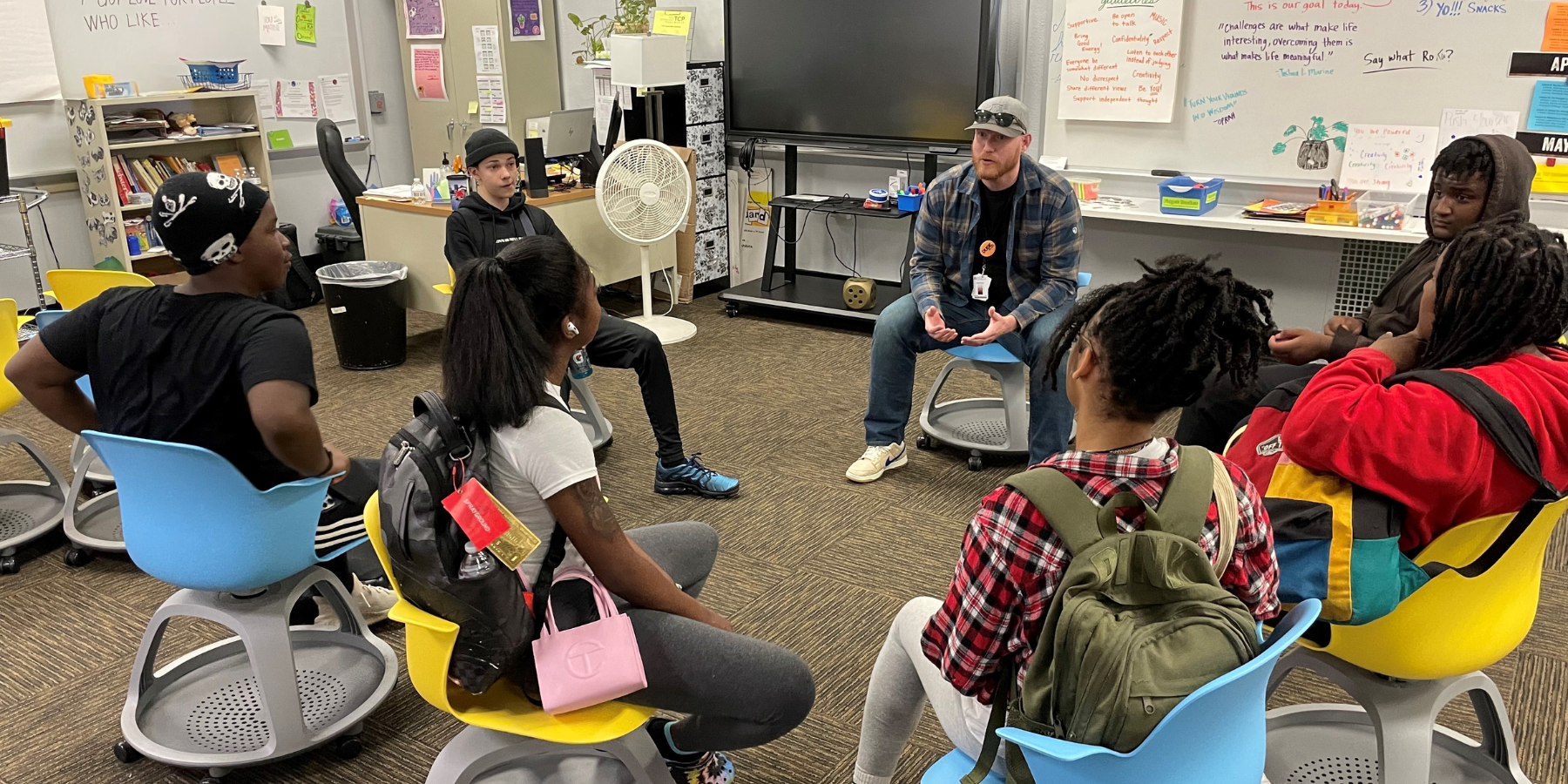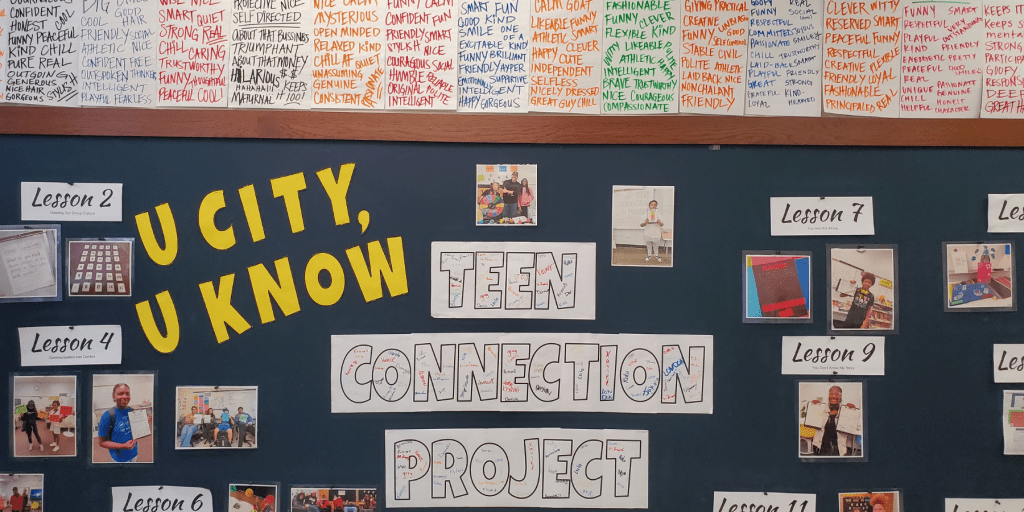Teens today are grappling with overwhelming pressures from a rapidly changing digital world. 97% of teens are online daily and 35% are on social media “almost constantly,”1 leading to:
- Loneliness and disconnection,
- Less in-person engagement, and
- Harmful social comparisons.
In fact, the powerful influence of social comparison, along with the desire to gain acceptance from peers both on and offline, is a big stressor facing many teens. Social media is a huge driver in teens comparing themselves to unrealistic versions of others.
All of this negatively impacts teen mental health. The former U.S. Surgeon General’s 2023 advisory highlights social media’s negative effects on teen mental health, loneliness, and disconnection – especially its power to reduce the quality of social interactions and harm self-esteem.
But there is hope. Positive youth development programs – like Wyman’s Teen Connection Project (TCP) – are reducing the isolating impacts of social media and other technology. These programs provide meaningful opportunities for teens to connect IRL (in real life). TCP equips teens with the critical skills needed to build positive, IRL connections that can reduce the pressures of social media and promote a sense of well-being and hope.
“Wyman’s Teen Connection Project has been a great experience that I recommend every student go through because our voices have been amplified, we built connections within the building and community, and we expanded opportunities for our future.”
-Amorie, TCP Participant
The Teen Connection Project
The Teen Connection Project (TCP) was created specifically for high schoolers in partnership with youth development experts and teens – and has a demonstrated impact in helping young people forge authentic relationships. In a safe and supportive environment, teens build crucial skills that help them navigate their world in a healthy way. TCP helps teens tackle insecurities, recognize and create meaningful connections, and cultivate a network of support. This happens across twelve 60-minute, in-person sessions facilitated by trusted adults.

The lessons are progressive. Each session, teens begin to trust each other more. Topics include healthy communication and conflict resolution – allowing teens the opportunity to be vulnerable and authentic, practice new skills, and strengthen their sense of self.
One of the curriculum lessons is #YouMatter. It’s a lesson in giving and accepting gratitude, and how this can strengthen connections. Teens choose someone to whom they’d like to express gratitude, create something that allows them to do this, share it with the individual, and report back to their TCP group. Teens are amazed at the impact they have AND they deepen an important, supportive, relationship.

Through lessons like this, TCP gives teens the tools to navigate the complexities of their lives and thrive in the digital age – ultimately creating positive engagement with peers that supports improved mental health and well-being.
Rigorous research reveals significant improvements in the quality of peer relationships immediately after participation, with lasting benefits in social coping skills, school engagement, and reduced depressive symptoms. Teens consistently praise the program for its engaging content and recommend it to their peers, solidifying TCP as a vital resource for building positive connections and essential skills to support healthy engagement with others.
“In TCP Lesson 7 “You Are Not Alone,” it’s like a deep talk with everyone and you can get feelings off your chest. Everyone has problems, not everybody is perfect. I feel like people should know everybody goes through things and that they are not alone. When we talk to others about problems, it can be a relief, and it can make you feel better.”
-Gibraun, TCP Participant
Currently, Wyman is implementing TCP in St. Louis, and our partners implement TCP around the country. Through our training and support model, we aim to reach 100,000 young people through TCP by 2030.
Call to Action
Technology is rapidly changing and becoming increasingly integrated with our everyday lives, which impacts our social connections. Community partners – including educators, parents, and funders – agree that there is a deep need for upstream programs like TCP that help teens build foundational life skills and develop healthy relationships.
Wyman’s school partners value the Teen Connection Project as an integral support for students, calling it a “place for powerful conversations” and a chance for students to “build each other up,” contributing positively to school culture.
Over the last few years, social media companies have faced lawsuits from more than 40 states over the harmful impacts social media can have on children and teenagers. At Wyman, we believe it is critical that payouts from these lawsuits provide funding to positive youth development programs – like TCP – that are proven to help young people develop high quality, IRL peer relationships and improve their overall well-being. Human social connections remain foundational to our well-being. The stronger that foundation, the more we can effectively navigate whatever technology is next.
Children’s Funding Project and Afterschool Alliance launched a national coalition to make sure payouts from current social media lawsuits fund after-school and summer programs for young people. We’re uniting young people and the people who care about them to turn the harms of social media into real-world opportunities – helping young people build skills, make friends, and grow. Join the coalition here.
Footnotes
1 Teens, Social Media and Technology 2022. Pew Research Center. https://www.pewresearch.org/internet/2022/08/10/teens-social-media-and-technology-2022/


